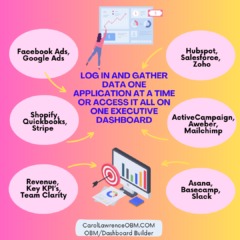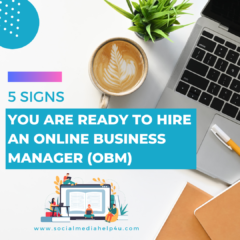One of the biggest problems business owners, particularly solopreneurs and authors, have, is the tendency to try to do it all. Rebecca Livermore is known for her ability to help authors free up their time by taking care of the tedious stuff, podcast support, Kindle formatting and uploading, blog writing, proofreading and editing. She’s a wealth of information. I’m so thrilled she has agreed to answer my curious questions on writing and publishing Kindle eBooks. If you foresee a book in your near future you don’t want to miss this interview!
Carol: Rebecca, Can you begin by telling my readers and I a little bit about yourself, your services and how you got started as a freelance writer?
Rebecca: I’ve been a freelance writer since 1993, where I got my start in writing for print magazines. When I was about to graduate from high school, I told my parents that I wanted to be a freelance writer, but my dad encouraged me to do something “more practical.” Because of that, I put off writing for a long time.
I don’t begrudge my dad for that advice. Both he and my mom came from poor backgrounds, and through a lot of hard work and “being practical” were able to provide a nice home for our family. I think he was concerned that as a writer I would fit into the starving artist category, and he certainly didn’t want me to go through that, so his advice was motivated by his care for me and what he felt was in my best interest.
Thankfully, my husband saw great potential in me, and encouraged me to write and even went so far as to subscribe to Writer’s Digest Magazine for me, even before I was ready to start writing. His encouragement eventually paid off and I decided to give writing a try.
Knowing that writing was a competitive field, I set a goal that I wouldn’t give up until I had written and submitted 100 articles and had all of them rejected. If that happened, at that point I would give myself permission to quit. Fortunately, I sold the second article I wrote and from there was very motivated to keep writing.
In 2006 I transitioned into writing for the Web, which I now focus on almost exclusively.
In terms of my services, I provide consulting related to various types of content creation such as blogging and podcasting. I also provide some hands on help with podcasting, and editing and Kindle services such as formatting and submission of Kindle books.
Carol: Have you written any books of your own and published them to Kindle?
Rebecca: Yes. At the current time I’ve published two of my own Kindle books and am working on a third one. I’ve also just started cowriting a Kindle book. All of my Kindle books can be found at http://eBooksByRebecca.com.
Carol: Why should an author consider Kindle? What do you love the most about the opportunities Kindle provides authors?
Rebecca: Kindle provides a lot of opportunities for authors. While you can definitely create eBooks and sell them from your own site, Amazon is a great place to find readers for your books, since it has its own search engine.
In addition to that, Kindle deals with the delivery of your eBooks so you don’t have to set up a store, deal with collecting payment, deal with customer issues, etc.
Unless you pay someone for editing, cover design, etc. there is no actual upfront cost for publishing a Kindle book. A percentage of each sale goes to Amazon, and the remainder goes to you.
It’s still important to promote the books you write because putting them up on Amazon in and of itself will not be enough to grow your readership to the place where it will be really profitable, but Amazon certainly provides an excellent platform for independent authors.
Carol: I’m in the middle of writing two eBooks and planning on submitting them to Kindle. Do they need to be formatted in a special way before they can be uploaded? Is this something you can help authors with who don’t enjoy the technical side of things?
Rebecca: Yes, you do need to format your books specifically for Kindle. For example, you don’t just upload a PDF or a Word document and hope for the best. It’s not super complicated to do, and there are instructions for doing so on the Kindle Direct Publishing website, but it does require attention to detail and is a little on the techy side.
Because of the attention to detail and technical details, I do provide this service for authors who would prefer to focus their time and energy on writing instead of spending time and perhaps frustration formatting.
Carol: We both know working from home can come with many blessings and many challenges. What nugget of wisdom would you like to share for someone considering working from home as a freelancer?
Rebecca: I think a key is to know your optimal work time — the time of day that you work best — and then spend that time on the most important aspect of your business. For instance, I personally work best in the morning, and I largely make a living writing, so I spend the first hours of my day focused on writing. I do that before spending time on email, social media, etc. This type of focus helps me to make progress in the things that matter most.
Carol: Is there secret ways to increase your Kindle books ranking on Amazon?
Rebecca: There are certainly things you can do to help increase your rankings. One is that it’s important to leverage your existing network. For instance, if you have an email list, letting your list know you have a new book, and occasionally promoting it to your list. You can, of course, also share about your book on social media.
But one of the biggest keys is to write multiple books in the same genre. Most of the people really making decent money with Kindle books are doing so because they have several books. This works well because if people like your work, they are likely to buy many if not all of your books. You can also use each of your books to promote your other books by doing things like linking to your other books at the end of each book.
Carol: I wanted to be sure to tell everyone reading this interview that we met on Twitter. I think Twitter is underestimated. I have met authors, clients and many new connections on Twitter. How important do you feel Twitter has been in growing your business?
Rebecca: I’ve been on Twitter for quite some time, but have only recently really started using it. I’ve been blown away by the number of people who have connected with me on Twitter and reached out to me regarding my services, or as with you, reached out to me for interviews. I’m also finding it to be a good way to build my email list since I link to an opt-in page in my Twitter profile.
Moving forward, investing time in Twitter is one of my top strategies for growing my business.
Carol: How important do you feel podcasting is to an authors growth and exposure? Especially new authors?
Rebecca: Podcasting is a great way for authors to build a platform. One big reason is that there are fewer podcasts than blogs, so it’s easier to be found through a podcast than a blog. At the same time, podcasting and blogging work together well since you can (and should) post your podcasts on your blog.
Whether you’re a new or established author, a podcast can really help you expand your reach.
Carol: For someone dreaming of writing a book but just can’t seem to get started what would you like to tell them?
Rebecca: Most often when people have a hard time getting started, it’s because the task feels overwhelming. This is especially true for something as big as a book.
The best way to make an overwhelming task less overwhelming is to break it down into bite-sized pieces. With a book, I would start off by doing a brain dump of everything you can think of that might be included in the book. It’s important to do this step without any judgment or worrying about whether or not the ideas are good ones. (You can eliminate the bad ideas later!)
Once you’ve done the initial brain dump, take all of those bits and put them together in an organized way. You can do this on paper, on index cards, or whatever makes the most sense to you. Then take that and write the book, bit by bit.
For example, if you used index cards, you could pick up one index card, and then write just that section. Writing your book “one index card at a time” is not overwhelming and yet can help you make great progress. If you had 50 index cards and tackled writing the content for one card each day, you can have your book written in two months.
Carol: Is there a page recommendation for ebooks? Do they need to be as long as a paper book?
Rebecca: The great news is that eBooks are typically shorter than print books, so they can be a bit faster and easier to write.
There really is a broad range of page lengths for eBooks, but a general rule of thumb is between 10,000 and 30,000 words, compared to an average of about 50,000 words for a print book.
To translate this into pages, an average book page is 250 words. So a 10,000 word Kindle book would be 40 pages, and a 30,000 Kindle book would be 120 pages. It’s important to note, however, that Kindle books don’t have “pages” in the traditional sense.
You can even write Kindle books that are less than 10,000 words, but it’s important to note the length in the description and to also price the book accordingly, so people don’t feel ripped off. For instance, I would price a book that is over 10,000 words at $2.99 and a book that is shorter at either $0.99 or $1.99.
Thanks Rebecca for that tidbit of very important information. Pricing seems to be a common issue for eBook authors.
Learn more about Rebecca Livermore and her business Professional Content Creation by visiting her website. Follow her on Facebook and Twitter to learn more about publishing and writing Kindle eBooks.
Thank you for visiting my blog and reading my posts. Are you enjoying my latest interviews? Would you like to see more?
If you enjoyed this interview please Tweet it to your audience!
SHARE THIS ARTICLE WITH YOUR TRIBE!
AND INCLUDE THE FOLLOWING CITATION AT THE END OF THE ARTICLE!
Carol Lawrence is the owner of Social Media Help 4 U, a virtual based business that supports authors and businesses based on integrity. Social Media Help 4 U offers conscious based business services, providing intuitive and skill based social media management, product reviews & consulting. Carol and her team manage social media accounts for busy business owners, authors and entrepreneurs. They assist their clients in building their online presence, engagement and connections with like minded people, customers and clients. They are fully aware that their clients online reputation is at stake. With the values of integrity, honesty and dependability being their top priority. Carol enjoys writing, the outdoors, having fun with her family & friends and interviewing movers & shakers in the writing world.
Related articles














